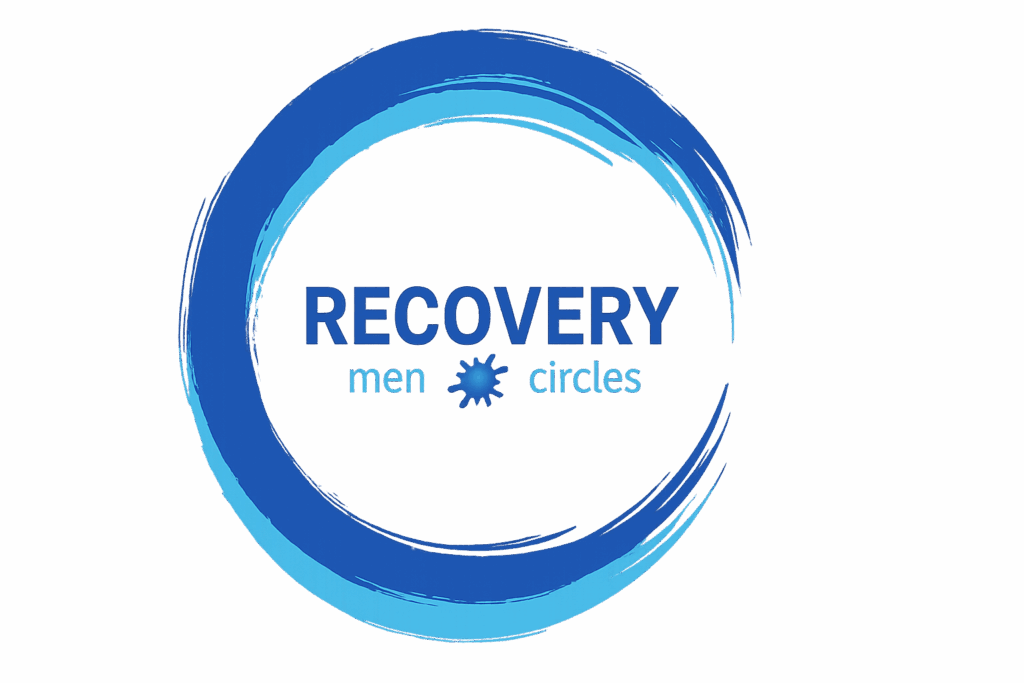PTSD Treatment & Therapy In Pheladelphia
Looking for support with PTSD? Reach out to us today or keep reading to learn how Men’s Sober House Philadelphia offers compassionate, effective care for individuals living with trauma.
You can also call us at (267) 412-3425
Featured In





“
I finally feel like I have a future. These people believed in me when I couldn’t.
– John L.
“
What I found here wasn’t just recovery housing in Philadelphia, it was a group of people who truly cared if I succeeded. They held me accountable and helped me rebuild.
– Tony F.
“
As a single mom, I needed a place I could trust. This affordable sober home in Philadelphia gave me that and more. I’m forever grateful.
– Jasmine T.
See more of our success stories
Stress is a normal part of life, but when someone lives through a traumatic event like a natural disaster, serious injury, or sexual assault that stress can become overwhelming. These kinds of experiences may lead to post-traumatic stress disorder (PTSD), a condition that can deeply impact someone’s mental and emotional health.
Roughly 7–8% of people in the United States will experience PTSD in their lifetime, with women nearly twice as likely as men to be affected. While PTSD is often associated with military service, it can touch anyone, regardless of their background or life story.
At Men’s Sober House Philadelphia, we recognize the importance of consistent, compassionate care for anyone carrying the weight of trauma. Everyone deserves a place to heal, and we’re here to help you navigate that journey.
You can also call us at (267) 412-3425
What is PTSD Therapy?
PTSD therapy is an important path toward healing. It gives individuals the tools and safe space needed to process trauma in a healthy way. Through personalized treatment plans and clinically proven methods, therapy helps ease emotional pain and restore balance.
Working alongside experienced mental health professionals and trusted treatment partners, individuals can stay committed to recovery and receive the quality support they deserve.
Psychiatrists
Specialists trained in trauma care begin with a thorough assessment before recommending the best approach to PTSD treatment. Depending on the person’s needs, this might include one-on-one therapy, group sessions, or other therapeutic techniques.
While psychiatrists are experts in trauma-focused therapy, some may not be able to prescribe medication based on local regulations. In those cases, they collaborate with licensed medical professionals to ensure the care remains safe and complete.
Social Workers In Healthcare Setting
Social workers play a powerful role in PTSD recovery. They help clients stay connected with critical support systems, access helpful resources, and maintain healthy relationships. Their involvement creates a strong, stable foundation so individuals can fully focus on healing.
Does The Men’s Sober Recovery Community Offer Post Traumatic Stress Disorder Treatment?
While Men’s Sober House Philadelphia is not a hospital or mental health clinic, we work closely with The Heights Treatment, a trusted partner specializing in outpatient mental health and trauma recovery services.
The Heights Treatment offers a full range of evidence-based therapies, including cognitive behavioral therapy (CBT), dialectical behavior therapy (DBT), and eye movement desensitization and reprocessing (EMDR). They’re also experienced in treating co-occurring conditions that often accompany PTSD, such as eating disorders, substance use issues, and acute stress disorder.
Their facilities meet today’s highest safety standards with access to medical resources, personal protective equipment, and secure spaces for client care. Physical distancing and preventative health protocols are followed carefully to protect everyone involved.
When more intensive care is needed, The Heights Treatment provides access to trauma-focused partial hospitalization programs (PHP). All admissions are handled with care and include thorough screenings to ensure clinical readiness and safety.
Meanwhile, Men’s Sober House Philadelphia offers a structured residential recovery program that supports individuals after treatment. We focus on daily wellness guiding residents with hygiene routines, healthy meal planning, and emotional support. It’s a space where people can continue to grow and heal mind, body, and spirit as they rebuild their lives after trauma.

Men’s Sober Livings

Outpatient Treatments

Individualized Intensive Program

Men’s Sober Companions
How Do You Treat PTSD?
Recovering from a major traumatic event or multiple traumatic experiences takes time and usually begins with a complete clinical assessment to ensure the right diagnosis. In some situations, individuals may start with a free online screening that highlights key symptoms such as trouble sleeping, emotional distress, a history of domestic violence, surviving a natural disaster, or past military service. These details help paint a clearer picture of how trauma and PTSD are affecting someone’s daily life.
Based on a person’s unique needs, treatment for PTSD may involve outpatient services or residential support. Therapies like cognitive processing therapy (CPT), prolonged exposure therapy (PE), eye movement desensitization and reprocessing (EMDR), or stress inoculation and control training may be recommended. Each method is meant to help individuals work through traumatic memories while building the skills they need to move forward in recovery.
4o
What Are The Four Phases Of PTSD?
PTSD can impact people of all backgrounds regardless of gender, race, or personal history, and it often looks different from one individual to the next. Generally, those experiencing PTSD may go through four common phases, each with its own challenges depending on the trauma’s depth and duration.
Impact
PTSD often starts after someone experiences a traumatic or life-threatening situation, such as war, assault, or acts of violence. In the immediate aftermath, it’s common to feel overwhelmed by fear, anxiety, or even guilt. Many try to distance themselves from the experience or push it out of their mind entirely as a way to feel safe again.
Denial
When emotions become too much to manage, people may begin to avoid the trauma altogether. Whether this happens consciously or not, it can lead to unhealthy ways of coping like substance use. These avoidance behaviors may feel like a temporary escape but often make recovery more difficult in the long run.
Short-term Recovery
As outlined in various CDC educational tools, individuals in this phase might seem to be doing okay from the outside. But underneath, they may struggle with feelings of isolation, disconnection, or hopelessness. Without proper guidance and support, it becomes harder to manage daily life. Consistent care and check-ins during this stage are crucial for meaningful healing.
Long-term Recovery
For individuals coping with PTSD-related anxiety, nightmares, or other lasting symptoms, residential treatment or outpatient programs can offer the structured support and therapeutic care they need. These programs help people manage their symptoms while slowly rebuilding a sense of safety and confidence in everyday life. At Men’s Sober House Philadelphia, we believe recovery is more than just treatment — it’s about building the tools and strategies needed for long-term success. As part of this journey, individuals begin to prepare for life after treatment, focusing on healthy coping skills, relapse prevention, and the confidence to move forward with hope and purpose.
Can PTSD Be Cured with Trauma Treatment?
Like many mental health conditions, PTSD does not have a definitive cure. However, with the right trauma-focused therapies, individuals can manage their symptoms effectively and regain a sense of peace and balance in their lives.
In addition to traditional methods, many specialists incorporate alternative trauma treatments that support long-term healing. These holistic options help individuals process trauma more completely and enhance their emotional well-being.
Trauma-Sensitive Yoga
Some trauma treatment approaches include practices that align the mind and body. Trauma-sensitive yoga encourages mindfulness, body awareness, and gentle movement. These sessions help individuals reconnect with themselves, manage anxiety, and build inner calm in a safe and supportive space.
Acupuncture
Acupuncture is an ancient Chinese healing practice that involves inserting very thin needles into specific points on the body. While it is not a substitute for therapy, acupuncture may support PTSD treatment by easing anxiety, calming the nervous system, and reducing overall emotional discomfort. It is sometimes used alongside clinical approaches to enhance emotional regulation and stress relief.
How Does Men’s Sober House Philadelphia Help Address PTSD?
At Men’s Sober House Philadelphia, we understand that healing from trauma takes more than just therapy it requires a nurturing environment where individuals feel safe, supported, and respected. While we are not a clinical treatment facility, we partner closely with our trusted sister center, The Heights Treatment, which offers specialized outpatient trauma care and mental health services.
Our role is to provide a stable, structured home setting where residents can focus on healing. Through supportive routines, life skills coaching, spiritual reflection, and community engagement, we help individuals build emotional resilience and maintain the progress they’ve made in clinical treatment.
Working together with licensed professionals, we ensure each person continues following their personalized care plan. We also assist with relapse prevention and dual diagnosis support, addressing behavioral health challenges and co-occurring conditions in collaboration with The Heights Treatment.
We believe that connection is key to recovery. That’s why we encourage on-site visitation from loved ones and create opportunities for community involvement. These moments of connection provide grounding and reassurance as individuals work through trauma in a safe, understanding space.
If you or someone you love has gone through trauma or a life-altering experience, speaking with a qualified provider is an important first step. A clinical assessment and open conversation with your insurance provider can help you understand your treatment options and take the next step toward admission into a trauma-focused care program.
Are There PTSD Treatment Centers and Therapies Near Me?
For anyone struggling with the effects of trauma, healing is possible. With the right support and guidance, individuals can reclaim their peace and move toward a more fulfilling life.
While Men’s Sober House Philadelphia is not a treatment center, we provide sober living and spiritual support as part of a holistic recovery journey. Our home offers the structure, stability, and care needed to complement your clinical trauma therapy and help you continue growing — emotionally, mentally, and spiritually.
Call our recovery specialists at Men’s Sober House Philadelphia today at (267) 412-3425 or fill out our contact form to learn to learn how joining our Philadelphia sober living community can support your healing. Whether you’re seeking clean and sober housing, structured support after treatment, or someone who understands we’re here for you.

